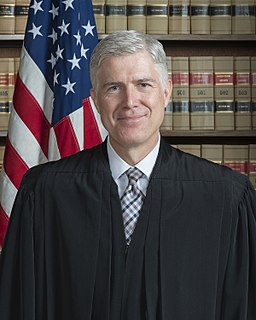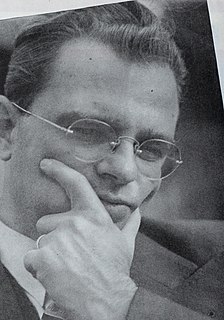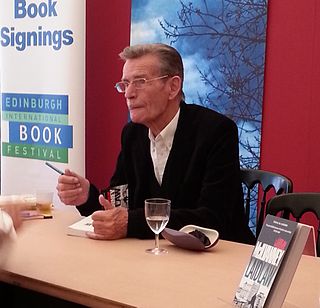A Quote by John Marshall
What is it that makes us trust our judges? Their independence in office and manner of appointment.
Quote Topics
Related Quotes
Just as judges have enormous stake in the appointment of judicial officers in the higher judiciary, the government has an equal stake. Since both of us have stakes in the appointment of members of the higher judiciary, the consultation of both of them is absolutely necessary. The government must have a say.
When God tells us to give extravagantly, we can trust Him to do the same in our lives. And this is really the core issue of it all. Do we trust Him? Do we trust Jesus when He tells us to give radically for the sake of the poor? Do we trust Him to provide for us when we begin using the resources He has given us to provide for others? Do we trust Him to know what is best for our lives, our families, and our financial futures?
Fear is just part of our DNA and our make-up. By definition, if we've had to be looked after for two years, it means we can't do it on our own and we need other people. That makes trust enormously important and it makes fear massive. Massive fear and trust issues really just defines us. The partner to belief is truth. If we're being fed lies, that's so powerful. And then, when we realize we're being lied to, it's going to make us really angry.
Shortly after the appointment of Britain's first-ever female police constable with officials powers of arrest, the Home Office declared that women could not be sworn in as police officers because they were not deemed 'proper persons'. It makes you wonder what those Home Office officials would say now to having a female Home Secretary.
Our conduct has a direct influence on how people think about the gospel. The world doesn't judge us by our theology; the world judges us by our behavior. People don't necessarily want to know what we believe about the Bible. They want to see if what we believe makes a difference in our lives. Our actions either bring glory to God or misrepresent His truth.
It is only great pain--that slow, sustained pain that takes its time, in which we are, as it were, burned with smoldering green firewood--that forces us philosophers to sink to our ultimate profundity and to do away with all the trust, everything good-natured, veil-imposing, mild and middling, on which we may have previously based our humanity. I doubt that such a pain makes us 'better'--but I know that it makes us deeper.
Four experts had an appointment with an ordinary man. They needed him to ratify their findings, or anything they achieved would be meaningless. As they drove to meet him, they knocked down a man on the road. He was dying. If they tried to save him, they might miss their appointment. They decided that their appointment, which concerned all of us, was more important than the life of one man. They drove on to keep their appointment. They did not know that the man they were to meet was the man they had left to die.


































